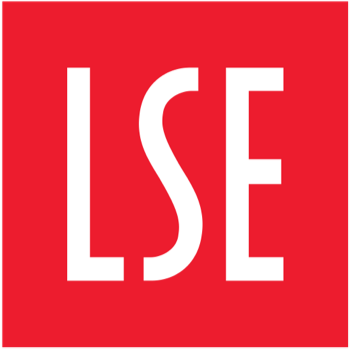In 2021, driven by a desire to deepen his understanding of public policy amidst global and domestic shifts, Nik Mohamed Hussein Nik Ali from Malaysia took a sabbatical to study at the London School of Economics (LSE). As a Master of Public Policy (MPP) student, he discovered the power of dedicated networks in shaping the plans, laws, and behaviours adopted by a government. From intense classroom debates on Southeast Asian politics to reflective evenings discussing global poverty, he and his cohort were bound by a collective passion for impactful change.
Some call this networking — LSE students call it building a community of collaborators who stick with you long after the cap and gown are put away. “When someone marvels at my ‘LSE Network,’ I will smile and nod,” says Ali, who is now back in Malaysia, serving as a Special Officer in the Prime Minister’s Department.
“I will know in my heart that I did not amass a bunch of email addresses and WhatsApp groups; I gained an irreplaceable support network. I gained a tribe.”

At LSE, Ali clicked with several civil servants who shared backgrounds like his. He enjoyed learning alongside students with experience in multinational corporations, international organisations, and mainstream policies. Source: London School of Economics
That’s what the MPP experience is all about — dissecting complex issues while engaging with a global cohort that spans continents and perspectives. LSE’s student body currently represents over 140 nationalities, and it’s easy to understand why. Who wouldn’t want to study at an institution ranked first in the UK and sixth in the world?
“I found the diverse mix of people in my cohort to be the most remarkable aspect,” says graduate Rodrigo Rios Dordelly from Mexico. “Interacting with colleagues from over 30 countries, each with different backgrounds and professional experiences was crucial in understanding the successes and failures of diverse policies worldwide.”
Dordelly credits his career progression to his time at LSE. Upon completing his studies and returning home, he assumed the role of Head of the International Affairs Unit at the Mexican Competition Commission. In this capacity, he represents his nation on the global stage, engaging with over 30 countries in the OECD Competition Committee in Paris and collaborating with more than 100 competition authorities through the International Competition Network.

Dordelly’s professors served in the Ministries of Finance and Ministries of Foreign Affairs, representing their countries at gatherings such as the G-20, IMF, WB, and the OECD. Source: London School of Economics
Indeed, the MPP equips its graduates with the critical skills and insights needed to make impactful strides in their careers. However, what truly sets it apart is how it bridges classroom and career at a pace that matches the urgency of today’s global challenges.
The nine-month, full-time programme was developed by the School of Public Policy (SPP) for mid-career professionals who bring at least five years of experience to the table. Its curriculum spans policy analysis, economics, and political science, leveraging LSE’s world-leading expertise to broaden understanding of the intricate mechanisms of government. It galvanises their grasp of public management, equipping them with the latest tools and approaches needed to improve and innovate public service provision.
Importantly, the programme offers the flexibility to specialise in areas of personal interest. Option courses cover Sustainable Finance and Impact Investing, Managerial Finance, Institutions and Global Trade, Participatory Governance, Public Policy for Blockchains and Digital Assets, as well as Happiness and Public Policy, amongst several others.
The MPP even offers optional modules like The Practice of Effective Climate Policy. Basic climate science is paired what we know about the historical relationship between human activity and the concentration of carbon and other greenhouse gases in the atmosphere.
This explains how the MPP launched careers like Ishita Aryan’s. The 2023 graduate from India is now a Managing Consultant, Climate Solutions and Sustainability for ERM UK.
“When I came to LSE, I was clear on the new subjects I wanted to learn and the familiar areas where I wanted to build greater depth,” she says. “The MPP provided me with all the necessary tools, theoretical grounding, and real-world examples. I am more than grateful to have attended seminars by Prof. Nicholas Stern, the ‘Father of Climate Economics,’ whose work has been a single factor of motivation for many climate professionals globally.”

In Aryan’s job, she helps her clients understand the cascading impacts of climate risk for both the public and private sectors. Source: London School of Economics
The MPP takes pride in hosting various seminar events featuring seasoned practitioners. Complementing these are the Professional Skills Accelerator and the SPP alumni career Q&A and mentorship scheme — all of which provide learners with actionable insights and direct applications of classroom knowledge to real-world challenges.
It’s clear the MPP is a solid choice for professionals looking to evolve theory into practice or specialise — it’s an equally apt pathway for those looking to pivot. Before joining the MPP, Toluwalola Kasali from Nigeria worked as an investment professional and lead research analyst in financial advisory and later as a Special Adviser to the Minister of Finance in Nigeria.
Kasali loved how the programme and her cohort brought to life the theoretical, political, and practical aspects of policymaking. “Learning with extraordinary classmates who shared their expertise, background, and culture also helped to illustrate how our varied life experiences shape our policy choices and preferences,” she explains.

As a student, Kasali continued to work on self-reliance projects for Internally Displaced People in Abuja, culminating in a policy paper at LSE that won the Lloyd Gruber Prize. Source: London School of Economics
Post-LSE, Kasali contributed to discussions on mental health, patent waivers for COVID-19 vaccines, and inequalities in policymaking. Her efforts include a documentary that explores the challenges of displacement, recognised at the Docs Without Borders Film Festival.
At the same time, she achieved her role as Operations Officer (Creating Markets Advisory) at the IFC Nigeria (World Bank Group). Despite her busy schedule, Kasali remains committed to giving back to the department that gave her the advanced skills she needed to continue to positively impact humanity.
“I am always grateful for the opportunity to share my time, skills, and knowledge with the amazing SPP community,” she says. “When we give back, we play a small role in improving a life, a community and the world.”
What will your legacy be? Bridge gaps, challenge norms, and craft policies that transform lives with an MPP from LSE.
Follow London School of Economics School of Public Policy on Facebook, X, Instagram, YouTube, and LinkedIn













